PROTECTING THE RIGHTS TO FREEDOM OF PEACEFUL ASSEMBLY AND ASSOCIATION THROUGH ACCOUNTABILITY


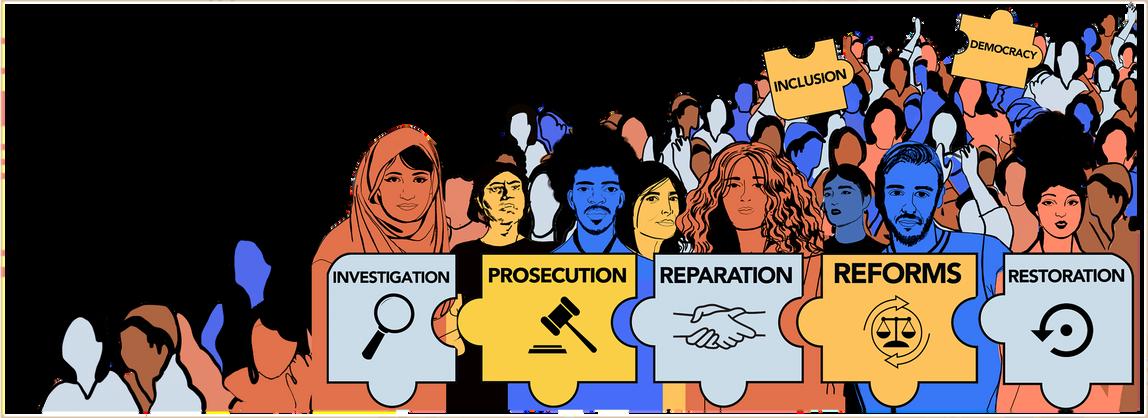
Breaking the cycle of repression against activists and protesters
On 28 June 2023 the United Nations Special Rapporteur on the rights to freedom of peaceful assembly and of association, Clément Nyaletsossi Voule presented his latest report to the Human Rights Council (A/HRC/53/38) on the importance of advancing victim-centred accountability for ending endemic impunity for serious crimes committed against activists and protesters.
The report examines the practical gaps for accountability for serious crimes committed against activists and protesters for exercising their fundamental freedoms While taking a victim-centred approach, the report makes recommendations to States and the international community urging them to implement their international human rights obligations to bring accountability and end impunity for these crimes
The report stresses the importance of providing a holistic victim-centred accountability for serious violations connected to the exercise of the rights to freedom of peaceful assembly and association, through effectively investigating,
investigating, prosecuting and punishing perpetrators, providing full reparations to victims, inclusive of establishing an honest, comprehensive and public account of all violations and their root causes, as well as adopting institutional and policy reforms The Special Rapporteur argues that only through adopting such holistic accountability measures, the fundamental freedoms of peaceful assembly and association can be enabled, protected, restored and effectively exercised
This briefer highlights the barriers inhibiting the advancement of accountability that entrench impunity for serious abuses against protesters and activists, and lays out key recommendations from the report.
WHAT'S AT STAKE
Protesters and activists around the world have been experiencing increased repression and serious human rights violations for exercising their rights to peaceful assembly and of association, and in many cases victims and their relatives have been left without justice or reparations. Perpetrators of such abuses have been empowered by the lack of accountability. The endemic impunity for such violations, contributing to the repetition of said violations, has generated cycles of repression, gravely undermining the enjoyment and protection of these fundamental rights. This results in undermining the potential of these rights which are key to foster inclusive, democratic societies that are resilient, and emancipated to tackle crises and to resist the backsliding of democracies and the expansion of authoritarianism.


Protecting these rights through robust and timely accountability is vital for preserving the evershrinking civic space as a whole; when accountability is missing, it pushes civil society to withdraw and self-censor, and authoritarianism emerges ”

SERIOUS HUMAN RIGHTS
VIOLATIONS ADDRESSED IN THE REPORT:

Extrajudicial or summary executions, including killings due to the use of excessive and otherwise unlawful force by law enforcement in the context of protests; enforced disappearances; torture and other forms of cruel, inhuman or degrading treatment or punishment, including sexual and gender-based violence; and prolonged arbitrary detentions, as well as cases of mass atrocities constituting international crimes, committed in the context of the rights to freedom of peaceful assembly and of association

BARRIERS TO ACCOUNTABILITY, AND ENDING IMPUNITY
for serious abuses related to freedom of peaceful assembly and association
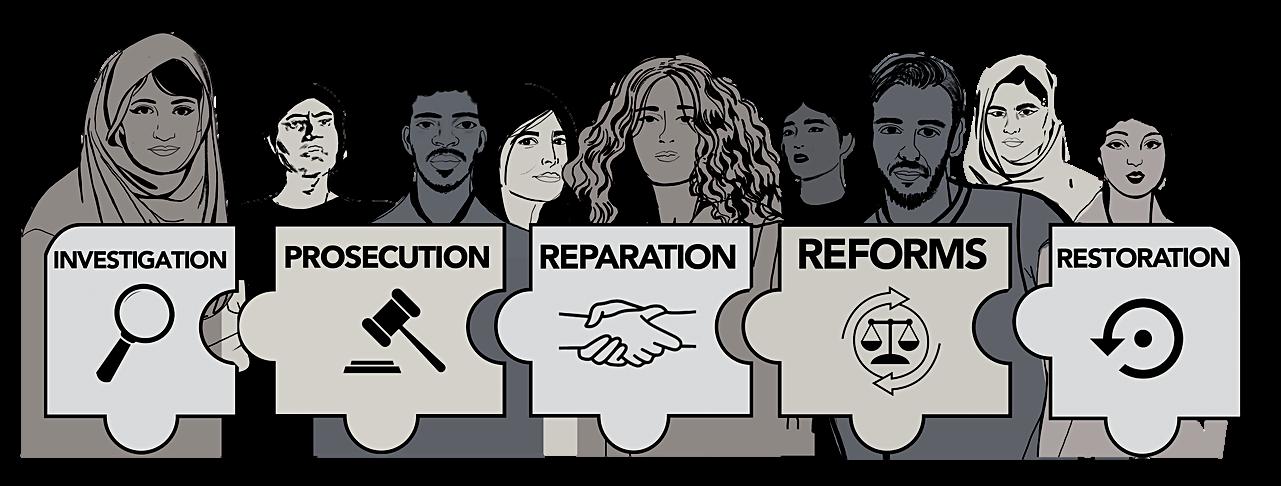
LACK OF POLITICAL WILL AND STATE POLICY OF NEGATION
States often take a negation approach, refuse to recognize individuals’ rights to freedom of peaceful assembly and association, deny crimes as occurred and disavow responsibility.
The report identifies a growing tendency of States shifting the blame to activists and protesters, labelling them as “terrorists” “rioters’ or “traitors” seeking to justify violent measures and human rights violations. Explicit calls by authorities for repression against activists and protesters and condoning police violence undermine public trust and pre-emptively prejudice and limit victims’ access to justice.
States have misused or abused a number of measures which obstructed or aimed at deliberately evading accountability for serious abuses against activists and protesters, including imposing legal and structural barriers, such as for example anti-terrorism laws or misusing states of emergency measures that often grant law enforcement with excessive powers. Trying activists and protesters in specialised anti-terrorism or military courts, providing law enforcement with immunity, or granting them amnesty, such as for the use of excessive force against activists and protesters, and using undercover plain-clothed security forces or state-sponsored militias in the context of assemblies and association rights, are other preoccupying trends identified as means of evading or obstructing accountability
OR DELIBERATELY OBSTRUCTING ACCOUNTABILITY
OF THE JUSTICE SYSTEM
EVADING
01. 02. INSTRUMENTALIZATION
03.

The report highlighted that in many States the criminal justice system has lost its independence and impartiality, leading to obstruction of access to justice, and shielding State actors and powerful perpetrators from prosecution for crimes against activists and protesters. The UNSR has also observed that a growing number of States have instrumentalized the criminal justice system as a tool through which they have targeted and prosecuted political opponents, human rights defenders and protesters, while shielding perpetrators of serious rights violations from prosecution
LACK OF INDEPENDENT INVESTIGATIONS
04.
Often investigations into the crimes against activists and protesters, when initiated by States, have been halfhearted, not independent nor impartial, and have failed to result in effective prosecutions. Failings have been notable in terms of lack of adequate normative frameworks, lack of recognition of certain crimes, lack of independent oversight bodies to investigate complaints of law enforcement misconduct, while in some cases police have refused to register cases concerning violations. Victims belonging to discriminated and marginalized communities face additional barriers to access the justice system with regards to abuses related to the exercise of their freedoms, including children, women, victims of LGBTQI+ communities, and indigenous people.
LACK OF EFFECTIVE PROSECUTIONS AND PUNISHMENT
05.
There is a general and widespread lack of prosecutions related to cases of serious abuses against protesters and activists, especially of prosecuting senior officials and commanders.

When prosecutions do happen they are against low level perpetrators, leaving the intellectual authors untouched. On the other hand, many activists and protesters have faced intensive investigations, have been prosecuted, charged, handed heavy fines and arbitrary or excessive sentences, and have been criminalized.
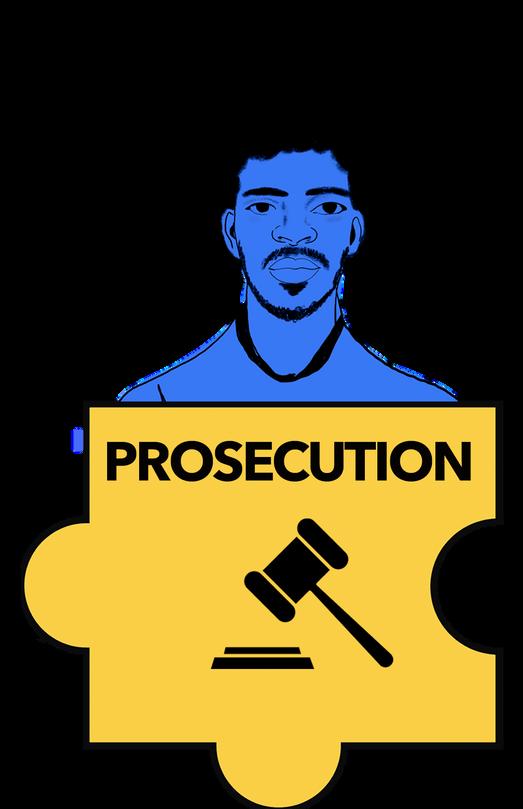

KEY RECOMMENDATIONS FOR STATES TO BETTER ADVANCE ACCOUNTABILITY
and end impunity to guarantee, restore and effectively enable the rights to peaceful assembly and of association:
While the report recognizes the primary role of States to bring perpetrators of abuses to account, it also explores the role of the international community in responding promptly and pre-emptively to prevent and protect victims of such abuse from further repression
In his report the UNSR suggests the following concrete measures States and the international community can take.

- Officials should condemn from the highest State level promptly and publicly abuses against activists, civil society and protesters; and refrain from stigmatising and misusing laws criminalising activists and protesters
- Independent and effective investigations should be initiated whenever serious allegations of serious human rights violations of the rights of activists and in the context of assemblies are reported, in accordance with international standards Investigations should examine decisions, orders and omissions up the entire chain of command, including the responsibility of public leaders
- Independent civilian oversight bodies should be set up, trained in human rights investigations in the context
of protests, including related to genderbased violations, and abuses against children
- To ensure effective prosecutions national laws should fully incorporate and criminalize international crimes, excessive use of force, torture and other forms of cruel, inhuman or degrading treatment or punishment, , and recognize command responsibility
- Officials and commanding officers should be held accountable, irrespective of their status and authority, for crimes committed by their subordinates Clear protocols for law enforcement, unambiguous and transparent lines of command, and a robust record-keeping and reporting system are required to enable the effective prosecution of commanders
ENSURE EFFECTIVE INVESTIGATIONS AND PROSECUTIONS 01.

REPARATIONS
02.
Reparations relative to the gravity of the harm inflicted on activists and protesters in connection to the exercise of their fundamental freedoms, are also a key part of accountability, and should include compensations, restitutions, rehabilitation; satisfaction, including restoring the dignity and rights of victims, publicly apologising, establishing the truth; and institutional reforms and changes in relevant laws and practices[1] It is the States’ responsibility to ensure reparations are provided, taking into account the differentiated needs of victims, , to repair the harm done to the victims and ensure non-repetition
Particular attention should be paid to remove stigmatization and recognizing the rights of those exercising their right to peaceful assembly, and in keeping the memory and restoring the truth, to help ensure non-repetition.
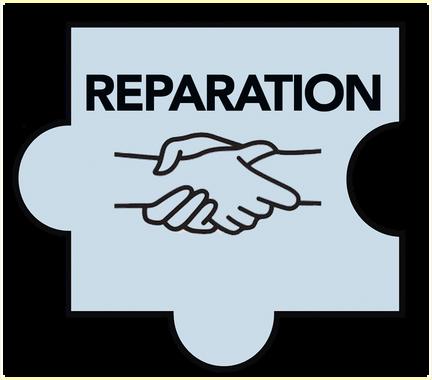
TRANSITIONAL JUSTICE MECHANISMS
03.
Transitional justice processes, seeking to identify the perpetrators, the truth and the crimes committed and examining their root causes, should be set up to address and provide accountability for mass gross human rights violations against activists and protesters
Such mechanisms, when designed and implemented through the inclusion of all sectors of society, including marginalized communities, victims’ groups and civil society, can effectively contribute to accountability and ending impunity. Such mechanisms are vital to ensure affected individuals and communities are awarded adequate reparations; and through addressing the root causes of the repression, including examining how previous restrictions on the rights to peaceful assembly and association contributed to the crimes, to initiate necessary legal and institutional reforms to guarantee the effective and safe exercise of these fundamental freedoms
GUARANTEE OF NONRECURRENCE
04.
Where there has been a pattern or practice of violation of the rights to peaceful assembly and of association, to guarantee non-recurrence, institutional, legal and policy reforms - including police and security sector reforms where applicableoriented towards the full recognition of these rights, are key Such reforms designed and implemented through the extensive consultations with victims, affected communities and civil society, should be aimed at enhancing the facilitation and protection of these fundamental freedoms, and strengthening the civilian oversight and accountability of law enforcement
VICTIM-CENTRED ACCOUNTABILITY
05.
Where there has been a pattern or practice of violation of the rights to peaceful assembly and of association, to guarantee non-recurrence, institutional, legal and policy reforms - including police and security sector reforms where applicableoriented towards the full recognition of these rights, are key
[1]GeneralCommentNo 31,BasicPrinciplesandGuidelinesontheRighttoaRemedyandReparationforVictimsofGrossViolationsofInternationalHumanRights LawandSeriousViolationsofInternationalHumanitarianLaw,para 16
Such reforms designed and implemented through the extensive consultations with victims, affected communities and civil society, should be aimed at enhancing the facilitation and protection of these fundamental freedoms, and strengthening the civilian oversight and accountability of law enforcement
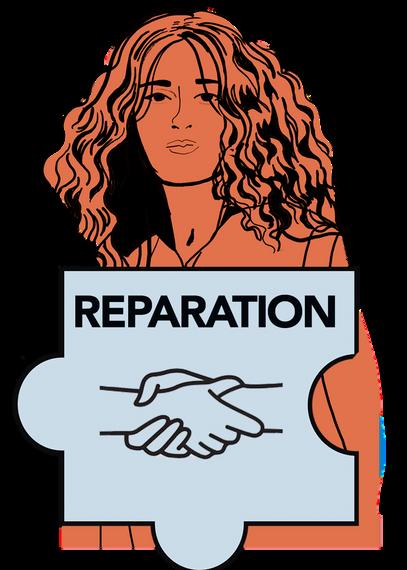
NONRECURRENCE

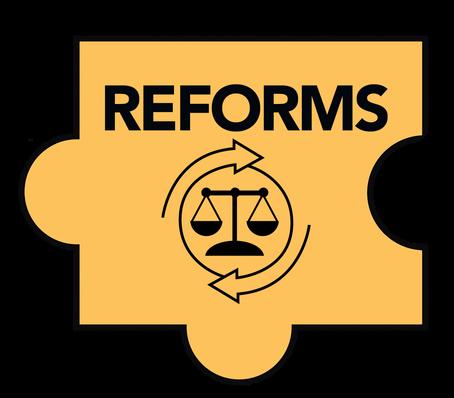
Survivors, their families and civil society should be an integral part of the national and international accountability processes involved in all stages, while States should respect and protect their rights to freedom of peaceful assembly and of association to enable their meaningful participation in the accountability processes, and to prevent violations in the first place.”
RADICAL CANDOR
ROLE OF THE INTERNATIONAL COMMUNITY
to
While States have the primary responsibility to ensure accountability, the international community should consistently support States and under the principle of complementarity, respond timely when States are unwilling or unable to bring to account perpetrators of serious abuses against activists and protesters, in order to deter further and greater violations The report stresses the need for collaboration at regional and international level to strengthen mechanisms to bring justice to civil society and protesters when they face serious crimes, but also to act timely and pre-emptively
- Independent international Commissions of inquiry should be mandated to investigate promptly the serious crimes

better advance accountability
against activists and protesters, including addressing the underlying root causes, and prepare and submit cases to national and international justice mechanisms;
Just like most print publications, the key to creating an effective booklet lies in curation. Consistency in branding is important for businesses, but good design also applies to personal or event booklets. Make sure you have clear, accurate information on each page. Choose compelling photos, fonts, and images. Pick colors that suit your style. You need to communicate well with your audience, so always keep them in mind as you design.
Whether you're creating a compilation of your recipes or showcasing your latest promotions, just create a good balance of content and you're on your way to a clear, effective booklet
- The International Criminal Court, setting up specialised courts or hybrid tribunals, as well as the application of the principle of universal jurisdiction, are important avenues for advancing judicial prosecutions and end impunity for serious crimes related to the exercise of the rights to freedom of peaceful assembly and association
- The report recalls that only through partnership between civil society, States, and regional and international bodies will the cycle of impunity end


the full report on Accountability
the
with key recommendations
Read
Consult
briefer
3 minute read


Watch all testimonies















